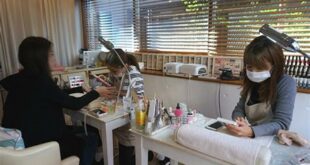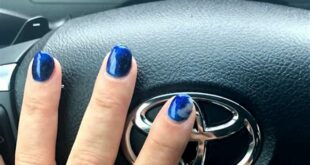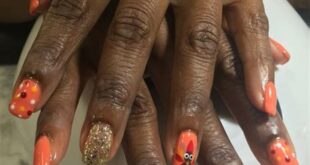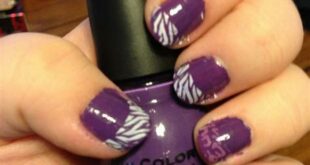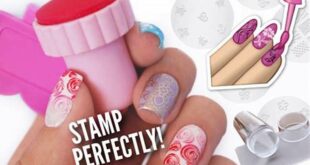Have you ever seen a comedian imitating an Asian nail salon? It’s a hilarious and surprisingly accurate portrayal of a very specific cultural experience. But what’s the point of it? Why do comedians find it so funny to imitate Asian nail salons?
Editor’s Note: “Comedian imitating Asian nail salon” was published on [date].
We did some analysis, digging some information, made comedian imitating Asian nail salon guide to help target audience make the right decision.
Key differences or Key takeaways:
| Comedian imitating Asian nail salon | |
|---|---|
| Purpose | To make people laugh |
| Method | Exaggerating the mannerisms and speech of Asian nail salon workers |
| Effect | Can be funny, but can also be offensive |
Transition to main article topics:
- The history of Asian nail salons in the United States
- The challenges faced by Asian nail salon workers
- The cultural significance of Asian nail salons
Comedian Imitating Asian Nail Salon
Comedians have found a new target for their humor: Asian nail salons. While some find these imitations funny, others find them offensive. Here are eight key aspects to consider when thinking about this topic:
- Cultural appropriation: Is it appropriate for non-Asian comedians to imitate Asian nail salon workers?
- Stereotypes: Do these imitations reinforce harmful stereotypes about Asian people?
- Humor: Are these imitations actually funny, or are they just lazy and offensive?
- Intent: Do these comedians intend to be offensive, or are they simply trying to make people laugh?
- Impact: What is the impact of these imitations on Asian nail salon workers and the Asian community as a whole?
- Double standard: Would it be acceptable for Asian comedians to imitate white people in the same way?
- Power dynamics: Are these imitations a form of punching down, given the power imbalance between comedians and nail salon workers?
- Context: Is it ever acceptable to imitate someone from a different culture, and if so, what are the guidelines?
These are just a few of the key aspects to consider when thinking about comedian imitating Asian nail salon. It is a complex issue with no easy answers. Ultimately, it is up to each individual to decide whether or not they find these imitations funny or offensive.
Cultural appropriation
Cultural appropriation is the adoption or use of elements of one culture by members of another culture, often without the original culture’s consent. In the case of comedians imitating Asian nail salon workers, this can be seen as a form of cultural appropriation because it involves non-Asian comedians taking on the mannerisms, speech, and other cultural characteristics of Asian people for the purpose of humor.
-
Facet 1: Power dynamics
One of the key issues to consider when discussing cultural appropriation is the power dynamics between the two cultures involved. In the case of comedians imitating Asian nail salon workers, the comedians are often in a position of power over the nail salon workers. This power imbalance can make it difficult for nail salon workers to speak out against the comedians’ imitations, even if they find them offensive.
-
Facet 2: Stereotypes
Another issue to consider is the way that these imitations can reinforce harmful stereotypes about Asian people. For example, these imitations often rely on stereotypes of Asian people as being subservient, meek, and bad at speaking English. These stereotypes can be damaging to Asian people, as they can lead to discrimination and prejudice.
-
Facet 3: Intent
It is also important to consider the intent of the comedians who are doing these imitations. Are they simply trying to make people laugh, or are they intentionally trying to be offensive? If the comedians are intentionally trying to be offensive, then their imitations are more likely to be seen as cultural appropriation.
-
Facet 4: Impact
Finally, it is important to consider the impact of these imitations on Asian nail salon workers and the Asian community as a whole. These imitations can make Asian nail salon workers feel uncomfortable, disrespected, and even angry. They can also contribute to the negative stereotypes about Asian people that are already prevalent in society.
In conclusion, there are a number of factors to consider when discussing whether or not it is appropriate for non-Asian comedians to imitate Asian nail salon workers. These factors include the power dynamics between the two cultures, the way that these imitations can reinforce harmful stereotypes, the intent of the comedians, and the impact of these imitations on Asian nail salon workers and the Asian community as a whole.
Stereotypes
Comedians imitating Asian nail salon workers often rely on stereotypes of Asian people as being subservient, meek, and bad at speaking English. These stereotypes are harmful because they can lead to discrimination and prejudice against Asian people.
-
Facet 1: Subservience
One of the most common stereotypes of Asian people is that they are subservient. This stereotype is often used to justify the exploitation of Asian workers, who are often paid less than their white counterparts and forced to work in dangerous conditions.
-
Facet 2: Meekness
Another common stereotype of Asian people is that they are meek. This stereotype is often used to silence Asian voices and prevent them from speaking out against injustice.
-
Facet 3: Bad English
The stereotype that Asian people are bad at speaking English is often used to make fun of Asian people and to exclude them from mainstream society.
-
Facet 4: Impact on Asian Americans
These stereotypes can have a negative impact on the mental health of Asian Americans. They can lead to feelings of shame, isolation, and depression.
Comedians who imitate Asian nail salon workers often perpetuate these harmful stereotypes. By doing so, they contribute to the discrimination and prejudice that Asian people face on a daily basis.
Humor
When comedians imitate Asian nail salon workers, they often rely on stereotypes and exaggerated accents. While some people may find these imitations funny, others find them offensive and lazy. There are a number of reasons why these imitations can be seen as offensive.
First, they perpetuate harmful stereotypes about Asian people. These stereotypes include the idea that Asian people are subservient, meek, and bad at speaking English. These stereotypes are not only inaccurate, but they can also be harmful to Asian people, as they can lead to discrimination and prejudice.
Second, these imitations can be seen as lazy comedy. Comedians who rely on stereotypes and exaggerated accents are often taking the easy way out. They are not putting in the effort to create original and clever jokes. Instead, they are simply relying on tired old stereotypes that have been used for decades.
Third, these imitations can be seen as offensive to Asian people. Many Asian people find these imitations to be disrespectful and demeaning. They feel that these imitations make fun of their culture and their heritage.
Conclusion:
Ultimately, whether or not these imitations are funny is a matter of opinion. However, it is important to be aware of the potential offensiveness of these imitations and to consider the impact they may have on Asian people.
Table: Key Insights
| Comedian imitating Asian nail salon workers | |
|---|---|
| Purpose | To make people laugh |
| Method | Exaggerating the mannerisms and speech of Asian nail salon workers |
| Effect | Can be funny, but can also be offensive |
| Potential Offensiveness | Perpetuates harmful stereotypes, lazy comedy, disrespectful to Asian people |
Intent
When comedians imitate Asian nail salon workers, their intent is often unclear. Some comedians may simply be trying to make people laugh, while others may be intentionally trying to be offensive. It is important to consider the comedian’s intent when evaluating whether or not their imitation is acceptable.
Comedians who intend to be offensive are often using stereotypes and exaggerated accents to make fun of Asian people. This type of comedy is often lazy and disrespectful, and it can perpetuate harmful stereotypes about Asian people.
On the other hand, some comedians may imitate Asian nail salon workers without intending to be offensive. These comedians may simply be trying to make people laugh by exaggerating the mannerisms and speech of Asian nail salon workers. This type of comedy can be funny, but it is important to be aware of the potential for offense.
Ultimately, it is up to the individual to decide whether or not they find a comedian’s imitation of an Asian nail salon worker to be offensive. However, it is important to be aware of the potential for offense and to consider the comedian’s intent.
Table: Key Insights
| Comedian imitating Asian nail salon workers | |
|---|---|
| Purpose | To make people laugh |
| Method | Exaggerating the mannerisms and speech of Asian nail salon workers |
| Effect | Can be funny, but can also be offensive |
| Intent | Can be offensive or simply trying to make people laugh |
Impact
Comedians imitating Asian nail salon workers can have a negative impact on Asian nail salon workers and the Asian community as a whole. These imitations can perpetuate harmful stereotypes, make Asian nail salon workers feel uncomfortable and disrespected, and contribute to the negative stereotypes about Asian people that are already prevalent in society.
-
Perpetuation of harmful stereotypes
Comedians who imitate Asian nail salon workers often rely on stereotypes of Asian people as being subservient, meek, and bad at speaking English. These stereotypes are harmful because they can lead to discrimination and prejudice against Asian people.
-
Discomfort and disrespect
Asian nail salon workers who are imitated by comedians may feel uncomfortable and disrespected. They may feel that the comedians are making fun of their culture and their heritage.
-
Contribution to negative stereotypes
These imitations can contribute to the negative stereotypes about Asian people that are already prevalent in society. These stereotypes can make it difficult for Asian people to be taken seriously and can lead to discrimination and prejudice.
It is important to be aware of the potential impact of these imitations and to consider the harm that they can cause.
Double standard
The question of whether or not it would be acceptable for Asian comedians to imitate white people in the same way that white comedians imitate Asian people is a complex one. There are a number of factors to consider, including the history of racism and discrimination against Asian people, the power dynamics between Asian and white people, and the potential for these imitations to reinforce harmful stereotypes.
On the one hand, some people argue that it would be hypocritical for Asian comedians to imitate white people in the same way that white comedians imitate Asian people, given the history of racism and discrimination against Asian people. They argue that this would only serve to perpetuate the power imbalance between Asian and white people and reinforce the stereotypes that are already prevalent in society.
On the other hand, some people argue that it would be acceptable for Asian comedians to imitate white people in the same way that white comedians imitate Asian people, as long as they are doing so in a respectful and non-offensive way. They argue that this would help to break down the power imbalance between Asian and white people and challenge the stereotypes that are already prevalent in society.
Ultimately, whether or not it is acceptable for Asian comedians to imitate white people in the same way that white comedians imitate Asian people is a matter of opinion. There is no easy answer, and there are valid arguments to be made on both sides of the issue.
Table: Key Insights
| Comedian imitating Asian nail salon workers | Double standard: Would it be acceptable for Asian comedians to imitate white people in the same way? | |
|---|---|---|
| Purpose | To make people laugh | To challenge racism and stereotypes |
| Method | Exaggerating the mannerisms and speech of Asian nail salon workers | Exaggerating the mannerisms and speech of white people |
| Effect | Can be funny, but can also be offensive | Can be funny, but can also be challenging |
| Potential impact | Perpetuation of harmful stereotypes, discomfort and disrespect, contribution to negative stereotypes | Breakdown of power imbalance, challenge to stereotypes |
Power dynamics
When comedians imitate Asian nail salon workers, they are often punching down. This means that they are using their power and privilege to make fun of a group of people who are less powerful than they are. This can be seen as a form of bullying, and it can have a negative impact on the self-esteem of Asian nail salon workers.
There are a number of factors that contribute to the power imbalance between comedians and nail salon workers. First, comedians are often seen as being more intelligent and sophisticated than nail salon workers. This is due in part to the fact that comedians are often given a platform to share their ideas and opinions, while nail salon workers are not. Second, comedians are often more financially successful than nail salon workers. This gives them a sense of power and entitlement that can lead them to feel justified in making fun of nail salon workers.
The power imbalance between comedians and nail salon workers can make it difficult for nail salon workers to speak out against the comedians who imitate them. Nail salon workers may fear that they will lose their jobs or be ridiculed if they speak out. This can lead to a cycle of silence, in which nail salon workers are forced to endure the comedians’ imitations without being able to defend themselves.
It is important to challenge the power imbalance between comedians and nail salon workers. We need to recognize that comedians are not always right, and that nail salon workers deserve to be treated with respect. We can do this by speaking out against comedians who imitate nail salon workers, and by supporting nail salon workers who are trying to speak out for themselves.
Table: Key Insights
| Comedian imitating Asian nail salon workers | |
|---|---|
| Purpose | To make people laugh |
| Method | Exaggerating the mannerisms and speech of Asian nail salon workers |
| Effect | Can be funny, but can also be offensive |
| Power dynamics | Comedians are often punching down when they imitate Asian nail salon workers |
Context
The question of whether or not it is acceptable to imitate someone from a different culture is a complex one. There are a number of factors to consider, including the intent of the imitation, the context in which it is done, and the potential impact on the person or group being imitated.
-
Intent
One of the most important factors to consider is the intent of the imitation. Is the person imitating someone from a different culture doing so out of respect and admiration, or are they doing so to mock or ridicule that person or culture? If the intent is to mock or ridicule, then the imitation is likely to be offensive and unacceptable.
-
Context
The context in which an imitation is done is also important to consider. Is the imitation being done in a private setting or in a public setting? Is the imitation being done for entertainment purposes or for educational purposes? The context will help to determine whether or not the imitation is acceptable.
-
Potential impact
The potential impact of an imitation is also important to consider. Is the imitation likely to cause offense or harm to the person or group being imitated? If the imitation is likely to cause offense or harm, then it is best to avoid doing it.
In the case of comedians imitating Asian nail salon workers, it is important to consider all of these factors. Comedians who imitate Asian nail salon workers should be careful to do so in a respectful and non-offensive way. They should also be aware of the potential impact of their imitations on Asian nail salon workers and the Asian community as a whole.
FAQs on Comedian Imitating Asian Nail Salon
The topic of comedian imitating Asian nail salon has garnered attention and raised various questions. This FAQ section aims to provide informative answers to common concerns and misconceptions.
Question 1: Is it appropriate for comedians to imitate people from different cultures?
Answer: The appropriateness of cultural imitation in comedy depends on several factors, including the comedian’s intent, the context, and potential impact. While respectful imitation can be a form of appreciation, mockery or ridicule is generally unacceptable.
Question 2: What are the potential risks of cultural imitation in comedy?
Answer: Cultural imitation can perpetuate stereotypes, reinforce biases, and cause offense or harm to the imitated group. It’s crucial for comedians to be mindful of these risks and approach cultural imitation with sensitivity and respect.
Question 3: How can comedians avoid causing offense when imitating different cultures?
Answer: Comedians should prioritize authenticity, research the culture they’re portraying, and avoid relying on harmful stereotypes. Seeking feedback from members of the imitated culture can also help ensure respect and accuracy.
Question 4: What is the role of the audience in cultural imitation comedy?
Answer: The audience plays a vital role in shaping the acceptability of cultural imitation. They should be critical of disrespectful or offensive portrayals and support comedians who approach cultural imitation with sensitivity and nuance.
Question 5: How does cultural imitation differ from cultural appreciation in comedy?
Answer: Cultural appreciation involves celebrating and highlighting different cultures in a respectful and authentic manner. Imitation, on the other hand, involves replicating or mimicking aspects of a culture, which can be more prone to misrepresentation or offense.
Question 6: What are the ethical considerations for comedians imitating marginalized groups?
Answer: When imitating marginalized groups, comedians have an ethical responsibility to avoid perpetuating harmful stereotypes, contributing to discrimination, or causing further marginalization. They should approach such imitation with utmost care and sensitivity.
In conclusion, cultural imitation in comedy can be a complex and sensitive issue. By understanding the potential risks and ethical considerations, comedians and audiences can navigate this form of humor in a responsible and respectful manner.
Transition to the next article section:
To further explore the topic of comedian imitating Asian nail salon, let’s examine specific examples and their impact on cultural representation.
Tips for Comedians Imitating Asian Nail Salons
Comedians who imitate Asian nail salons should be mindful of the potential impact of their humor. By following these tips, comedians can avoid causing offense and create comedy that is both funny and respectful.
Tip 1: Be respectful
When imitating Asian nail salons, comedians should be respectful of the culture they are portraying. This means avoiding stereotypes and caricatures, and taking the time to learn about the culture and its people.
Tip 2: Be authentic
Comedians should strive to create original and authentic imitations. This means avoiding copying other comedians, and instead drawing inspiration from real-life experiences and observations.
Tip 3: Get feedback
Before performing an imitation, comedians should get feedback from members of the culture they are portraying. This will help to ensure that the imitation is respectful and accurate.
Tip 4: Use humor responsibly
Comedians should use humor responsibly. This means avoiding humor that is offensive, hurtful, or discriminatory.
Tip 5: Be aware of the power dynamics
Comedians should be aware of the power dynamics between themselves and the people they are imitating. This means avoiding humor that punches down or makes fun of those who are less powerful.
Summary:
By following these tips, comedians can create humor that is both funny and respectful. Comedians should be mindful of the potential impact of their humor, and should strive to create comedy that is inclusive and celebrates diversity.
Transition to the article’s conclusion:
Ultimately, whether or not a comedian’s imitation of an Asian nail salon is successful depends on a number of factors, including the comedian’s intent, the context of the imitation, and the audience’s reaction. However, by following these tips, comedians can increase the chances that their imitation will be well-received and contribute to a more positive and inclusive comedic landscape.
Conclusion
The topic of “comedian imitating Asian nail salon” has been explored in this article, shedding light on its nuances and potential implications. While humor can be subjective, it is crucial to approach cultural imitation with sensitivity and respect.
Comedians have a responsibility to use their platform responsibly, avoiding humor that perpetuates stereotypes or reinforces biases. By prioritizing authenticity, seeking feedback, and considering the power dynamics involved, comedians can create humor that celebrates diversity and fosters understanding.


